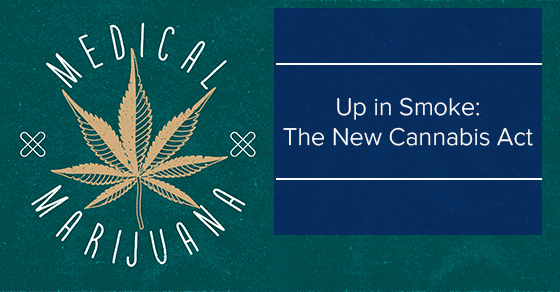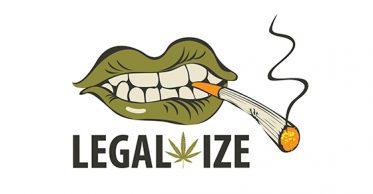Up in Smoke: The New Cannabis Act

Prior to his election in 2015, Justin Trudeau’s Liberal platform was marked by the promise to legalize, regulate, and restrict access to marijuana across Canada. Canada’s current system, as it was then did not work.
Before Justin Trudeau came to power in 2015 on a promise to legalize marijuana, the laws designed to prevent drug use had proved to be a costly and abject failure. The marijuana prohibition didn’t seem to be preventing young people from accessing and using marijuana. The costs of arresting and prosecuting Canadians for relatively minor possession offences was an expensive strain on the already limited resources of our criminal justice system. A record amount of Canadians were held back by old criminal records for possessing relatively small amounts of marijuana, a minor and non-violent offence. Organized crime was making huge profits from illegal production and sale of marijuana.
Something had to be done, but it was not as simple as just making pot legal. Legalization for use by responsible adults had to, like alcohol, be paired with regulations to restrict access to those who had the maturity and/or the medical need to consume responsibly, while cutting out organized crime.
2015 Liberal Platform to Legalize Marijuana
The liberal platform’s pitch to legalize the recreational use of marijuana was an important factor in the election of Justin Trudeau as Canada’s 23rd Prime Minister. After his election, Trudeau took significant steps to make good on his promise. A Task Force on Marijuana Legalization and Regulation authored a 106-page report released to the public, offering recommendations for the proposed legalization. The Task Force on Marijuana Legalization and Regulation was a catalyst for the creation of Bill C-45, better known as the Cannabis Act, which came into full-fledged force on October 17, 2018.
The Cannabis Act regulates the possession, production, sale and distribution of marijuana in Canada. Similar to the Controlled Drugs and Substances Act (“CDSA”), the Cannabis Act sets forth offences likewise categorized for possession, distribution, selling, importing/ exporting, and cultivation.
What Are the Main Purposes of the Cannabis Act?
The Cannabis Act works to protect public health and safety through the legalization, regulation and restriction of access to marijuana. The Cannabis Act achieves seven principal purposes:
(1) Protecting young people by restricting their access to cannabis;
(2) Protecting people from inducements or incentives to use marijuana;
(3) Providing for the safe production of cannabis to reduce the illicit and unsafe production;
(4) Deterring illicit activities through sanctions and enforcement through the Cannabis Act;
(5) Reducing the financial burden on the criminal justice system to prosecute offences in relation to cannabis;
(6) Providing access to safe, quality-controlled cannabis; and
(7) Promoting and enhancing the public’s awareness about the safe use and health risks associated with cannabis.
How Much Cannabis Can One Legally Possess?
Section 8 of the Cannabis Act prohibits the following possession of:
(1) Cannabis by an organization;
(2) More than four cannabis plants that are not budding or flowering by an individual;
(3) A budding or flowering cannabis plant by an individual in public;
(4) More than 5g of dried cannabis or its “equivalency” by a young person;
(5) Any amount of “illicit” cannabis by an adult; and
(6) More than 30g of dried cannabis or its equivalency by an adult in public.
Cannabis is “illicit” when it is distributed, produced or sold by a person who is prohibited from doing so under the Cannabis Act. Provincially-licensed retailers, such as the Ontario Cannabis Store sell dried and fresh cannabis, as well as cannabis oil to adults. In some provinces that do not yet have a regulated retail framework, individuals can legally purchase cannabis from federally-licensed producers online.
How Old Do You Have to Be To Consume Marijuana?
An adult is a person who is 18 year of age or older. This is an important distinction from the age restriction for alcohol consumption and purchase, which is 19 year of age in Ontario. An adult can therefore legally possess and share (with other adults) up to 30 grams of dried cannabis (or its equivalent).
Equivalency Amounts
The Cannabis Act sets out equivalency amounts for cannabis in its different forms, as variations affect weight and size. The possession limits are based on the weight of dried cannabis. It’s very important to know what the type of cannabis product is because it will invariably affect its weight, which could put an individual over or under the legal possession limit, even by a nominal amount.
This means, for example, an adult who is 18 years of age or older could legally possess 150 grams of fresh cannabis. 5 grams (1 gram of dried cannabis is equivalent to 5 grams of fresh cannabis) x 30 grams (the legal possession limit) = 150 grams of fresh cannabis.
| Cannabis Class | Equivalent Amount to 1 Gram of Dried Cannabis |
|---|---|
| Cannabis Plant Seeds | 1 Seed |
| Cannabis Non-Solid Concentrate | 0.25 Grams |
| Cannabis Solid Concentrate | 0.25 Grams |
| Non-Solids Containing Cannabis (“Liquids”) | 70 Grams |
| Solids Containing Cannabis (“Edibles”) | 15 Grams |
| Fresh Cannabis (Non-Dry) | 5 Grams |
| Dried Cannabis | 1 Gram |
Possession Defences
If a person is in possession of a prohibited amount of marijuana because he or she remains at the scene of a medical emergency in order to assist a person who is suffering from a life-threatening situation induced by a prohibited substance, that person cannot be charged, or convicted of possession. Similarly, a person cannot be charged with breaching a release, conditional sentence, probation or parole conditions because he or she remains at the scene of a medical emergency to assist a person for the aforementioned reasons. All of these rules also apply in the reverse to the person who is suffering from the medical emergency. The purpose of these defences is to encourage a focus on safety and public health.
Distribution and Possession for the Purpose of Distribution
Pursuant to subsection 9(1) of the Cannabis Act, distribution is an offence in certain circumstances. “Distribution” means to administer, give, transfer, transport, send, deliver, provide, offer, or otherwise, whether directly or indirectly, make available in any manner marijuana.
Adults are prohibited from distributing more than 30 grams of dried cannabis (or its equivalency), illicit cannabis, cannabis to an organization, or cannabis to any person under the age of 18. A young person is prohibited from distributing cannabis to an organization, or more than 5 grams of dried cannabis (or its equivalency).
Individuals are also prohibited from distributing one or more flowering or budding plants, or more than four non-flowering or budding plants. Organizations are strictly prohibited from distributing cannabis.
Medical Marijuana
The Cannabis Act does not affect access for those who use medical cannabis that is validly authorized from a healthcare provider. Any class of persons can be exempted from any or all provisions of the Cannabis Act or regulations by the Minister. Such grounds for exemption include those that are necessary for medical or scientific purposes, and are in the public interest.
All of these provisions are new and are slowly being tested and adapted across the country by governments, law enforcement, and the courts. Canada is now at the forefront of countries seeking to balance the recreational desires of the community, with public safety and a more fair and cost-effective approach to regulation.
For a snapshot of how marijuana and the new law works in Canada, see our blog “Pot By Numbers: Significant Digits on Cannabis”, by Nick Kandel, click here.
If you have been charged with a drug offence related to marijuana or any other controlled substance, call The Defence Group for a free consultation at 877-295-2830.
Cassy Beaulac is a recent graduate of the University of Windsor Law School
Arun S. Maini is a criminal lawyer and former prosecutor with over 20 years of experience.


